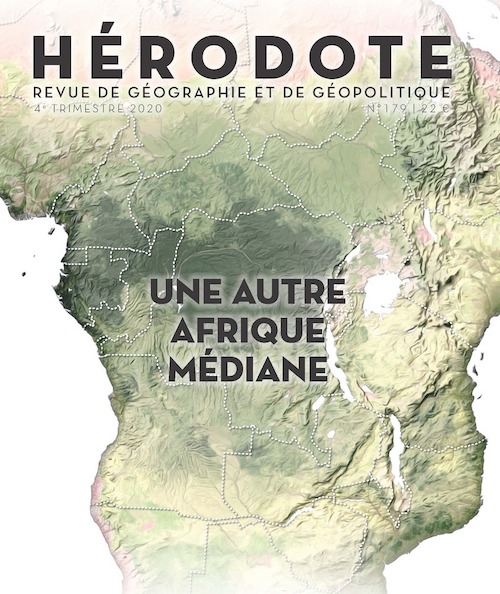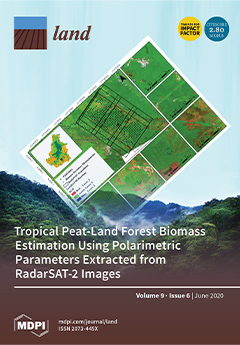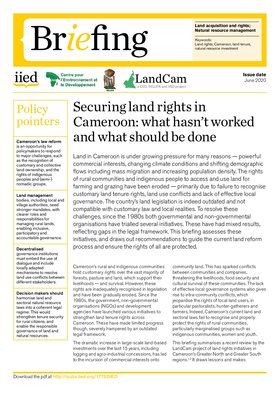Transparency of land-based investments: Cameroon country snapshot
A policy brief introducing a new book edited by Khwezi Mabasa and Bulelwa Mabasa. The book examines how land and agrarian reform impacts nation building;citizenship and identity formation. It draws attention to the limitations of reducing land to a commodity and how this approach perpetuates social conflict and inequality in land reform policy implementation. The brief argues that it is important to explore the contested meanings of land in society. These varied meanings challenge traditional land reform perspectives.










